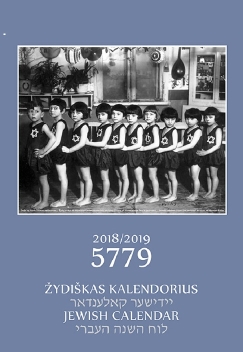
This September, 2018, reminds us of the destruction of the Vilnius ghetto 75 years ago, the Holocaust, marking the history of our country for the ages with great loss.
The most fragile portion of our society, the children, also became hostages to this horror. By condemning our children to death, the Nazi invaders and their local collaborators attempted to snuff out our future; more than a million children in Europe became the victims of those who supported this ruthless and inhumane ideology. And the effects of the Holocaust in Lithuania were also ruthless: complete Jewish shtetlakh left empty, broken Jewish families, family lives cut short and the loss of great civic and intellectual potential.
My parents were also children when the war began. The war deprived them of the joy of childhood. My mother was rescued from the Kinder aktion in the Šiauliai ghetto by her mother, my grandmother. She was haunted by the ghost of this event for her entire life. My father’s mother was murdered at the onset of the war, and he could never remember her face. Frequently the children who were evacuated returned home without anyone to greet them, their parents were gone. The experience of the Holocaust ruined the lives even of those children who were rescued by good people. At first the parents entrusted their children to people they didn’t know, to these good people, these Righteous Gentiles, and the bonds of love connected these rescued children forever as if by blood. Those who survived the Holocaust, those who were forced to become martyrs in the concentration camps, the real parents, were often barely recognized by their own children after the war.
Thousands were murdered in the massacres and mass murders in Lithuania in 1941, and those who remained were sent to the ghettos in Vilnius, Kaunas, Šiauliai and Švenčionys.
The diary entries of Ytizhak Rudashevski, translated to Lithuanian and published in 2017, offer a window onto everyday life in the ghetto. This chronicle by an adolescent man gifted with literary talent both show the daily experiences of this young person and commemorate the daily life of the ghetto. Although grim and painful, it also testifies to this young person’s resolve and thirst for life: the ghetto was infused with cultural and social life which kept the inmates from losing their humanity.
The Jewish calendar for 5779 commemorating the 75th anniversary of the destruction of the Vilnius ghetto is dedicated to the children of the Holocaust, to commemorate those who were powerless in the face of all-destroying hatred. The majority of them never saw the eyes of their true parents again, never returned to their homes, many of their names are unknown to us, but they carried within all the faith and hope of the Jewish people. Let their fate be the duty of all of us to the world: never again.
Faina Kukliansky, chairwoman
Lithuanian Jewish Community

